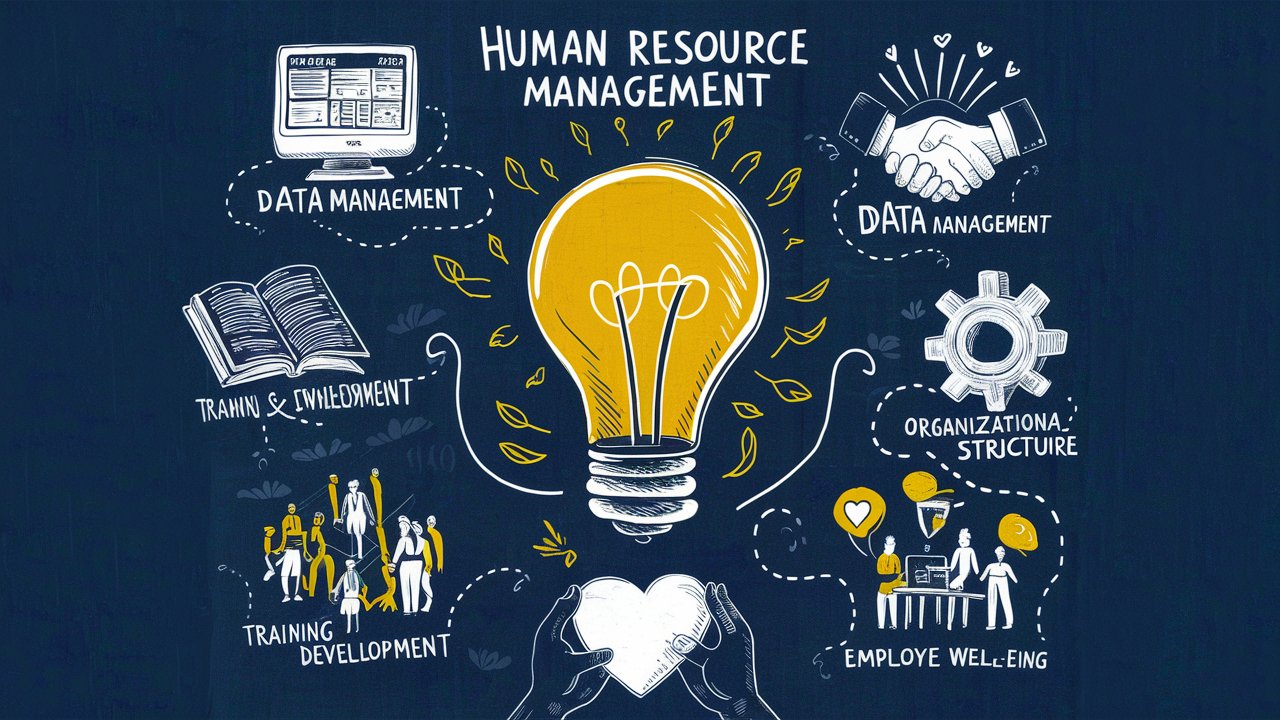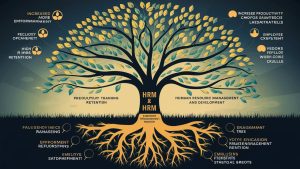Human Resource Management (HRM) is a fundamental aspect of any organization, playing a pivotal role in the effective and efficient management of its most valuable asset: its people. In essence, HRM encompasses a wide range of activities and responsibilities that are crucial for building and maintaining a productive workforce. Therefore, understanding the meaning of HRM is essential for appreciating its impact on organizational success Importance of HRM.
First and foremost, HRM refers to the strategic approach to managing people within an organization. It involves designing and implementing policies, practices, and systems that influence employees’ behavior, attitudes, and performance. Indeed, the primary objective of HRM is to maximize employee performance to meet the organization’s strategic goals. Hence, HRM is not merely about hiring and firing employees; rather, it is about fostering a work environment where employees can thrive and contribute to the organization’s success.
Moreover, HRM includes various functions such as recruitment, selection, training, and development. For instance, the recruitment process involves identifying and attracting suitable candidates for job vacancies. This is followed by the selection process, which entails evaluating and choosing the best candidates to fill those positions. Consequently, effective recruitment and selection practices ensure that the organization has a skilled and capable workforce Meaning of Human Resource.
In addition to recruitment and selection, training and development are also key components of HRM. These activities are aimed at enhancing employees’ skills and knowledge to improve their performance. For example, HRM professionals organize training programs, workshops, and seminars to equip employees with the necessary competencies. Therefore, continuous training and development are vital for keeping the workforce updated with the latest industry trends and practices Meaning of Human Resource.
Furthermore, HRM involves performance management, which is a systematic process of evaluating and improving employee performance. This includes setting performance standards, providing regular feedback, and conducting performance appraisals. By doing so, HRM helps identify areas where employees excel and areas that need improvement. As a result, performance management fosters a culture of accountability and continuous improvement within the organization Meaning of Human Resource.
Additionally, HRM encompasses compensation and benefits management. This function involves designing and administering employee compensation packages, including salaries, bonuses, and benefits such as health insurance and retirement plans. Proper compensation and benefits management are crucial for attracting and retaining top talent. Moreover, competitive compensation packages can enhance employee motivation and job satisfaction, leading to increased productivity and reduced turnover rates Meaning of Human Resource.
Another important aspect of HRM is employee relations, which focuses on maintaining a positive and harmonious work environment. This involves addressing employee grievances, resolving conflicts, and promoting effective communication between employees and management. By fostering good employee relations, HRM helps create a supportive work culture where employees feel valued and respected. Consequently, this leads to higher employee morale and better overall organizational performance Meaning of Human Resource.
HRM also plays a crucial role in ensuring legal compliance and managing risks associated with employment practices. HR professionals are responsible for staying updated with labor laws and regulations and ensuring that the organization adheres to these laws. This includes implementing policies related to workplace safety, discrimination, and harassment. By doing so, HRM helps protect the organization from legal issues and enhances its reputation as a fair and ethical employer.
In conclusion, the meaning of Human Resource Management encompasses a broad spectrum of activities aimed at effectively managing an organization’s human capital. From recruitment and selection to training and development, performance management, compensation and benefits, employee relations, and legal compliance, HRM is integral to the success of any organization. Therefore, a comprehensive understanding of HRM is essential for recognizing its importance in achieving organizational goals and fostering a positive work environment Meaning of Human Resource.
By strategically managing its human resources, an organization can enhance its competitiveness, drive innovation, and achieve sustainable growth in today’s dynamic business landscape.


